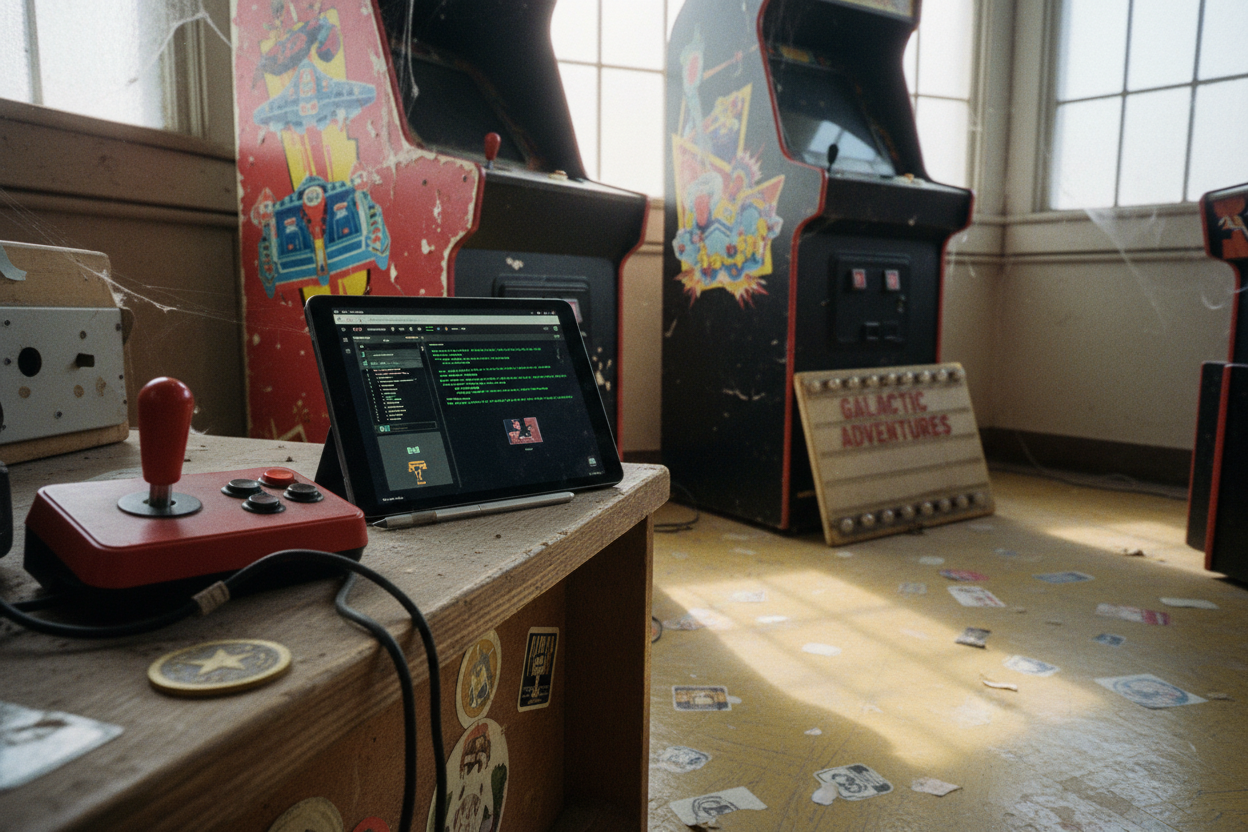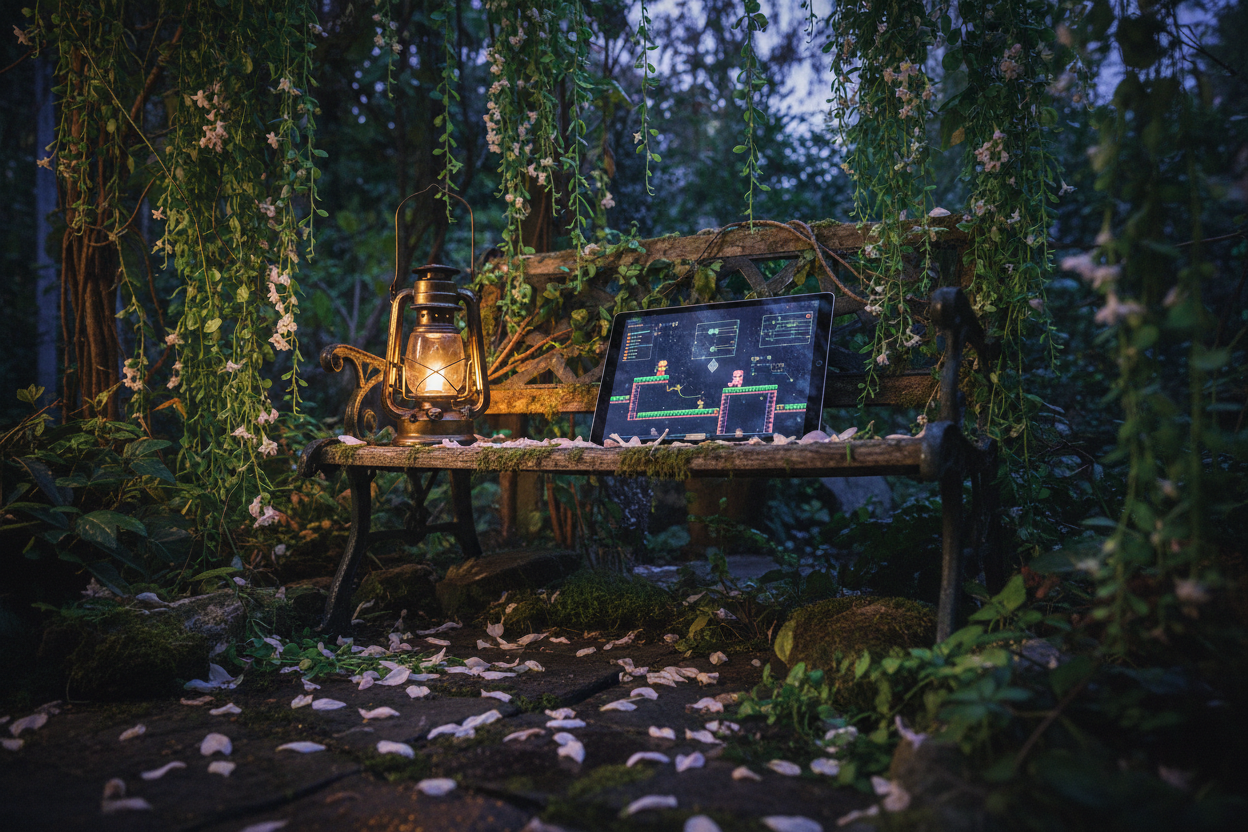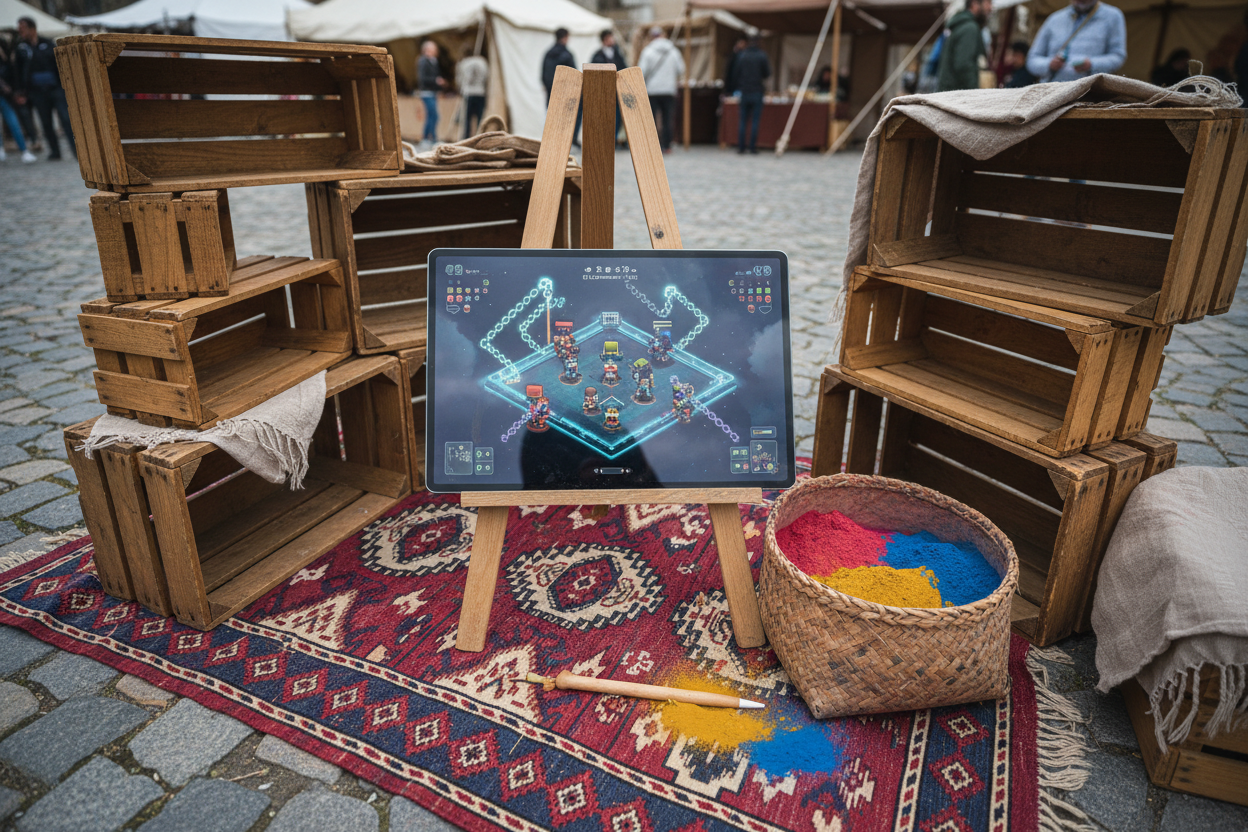How MUD and Dojo Are Powering the Next Generation of Fully On-Chain Games
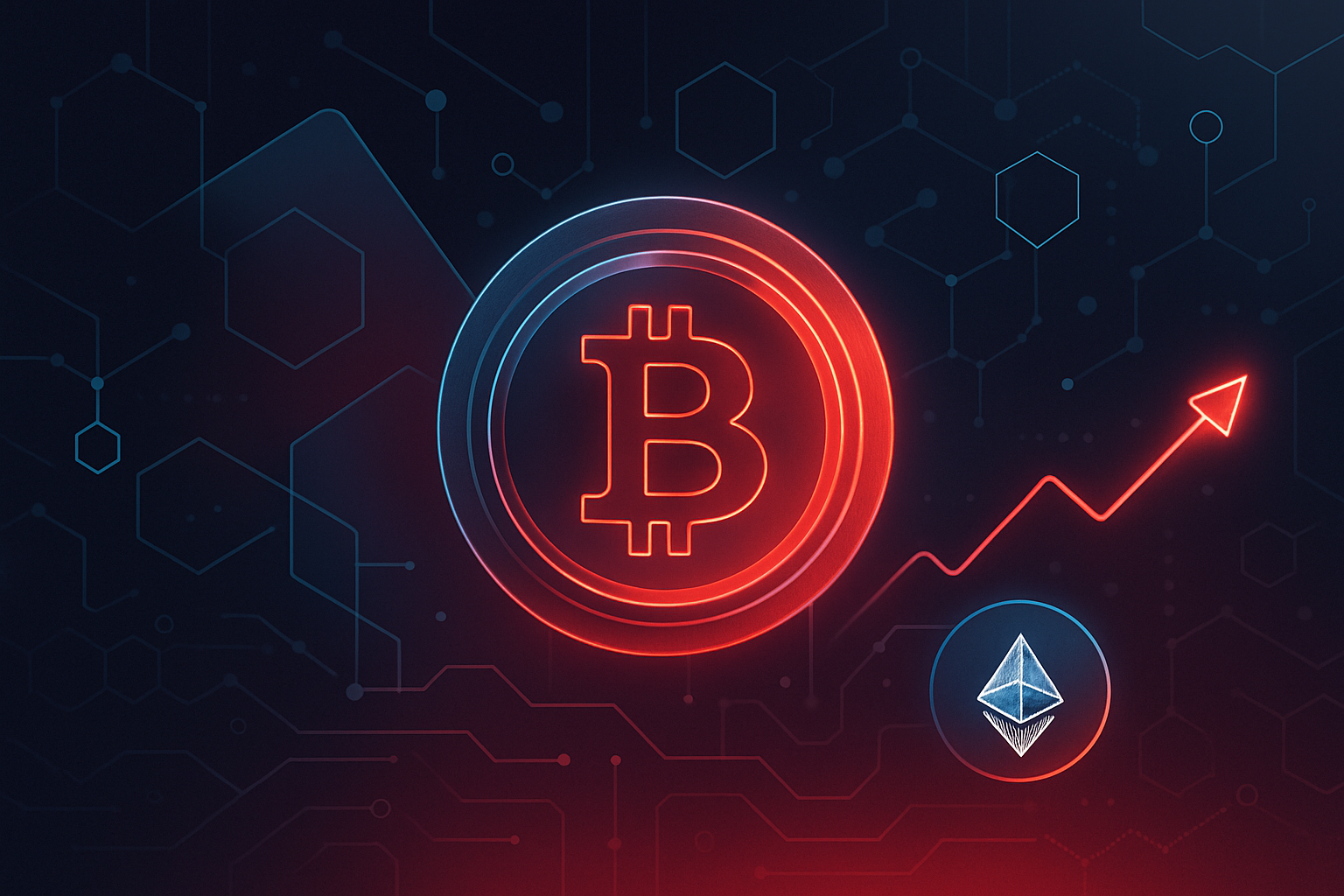
The fully on-chain gaming revolution is here, and it’s not just a buzzword. If you’ve been watching the space, you know that MUD and Dojo are leading the charge, providing the rails for developers to build games where every action, asset, and rule lives directly on the blockchain. This isn’t your typical Web3 game with a few NFT cosmetics or off-chain logic. We’re talking about games where every move is an on-chain transaction, creating unprecedented transparency, composability, and player ownership.
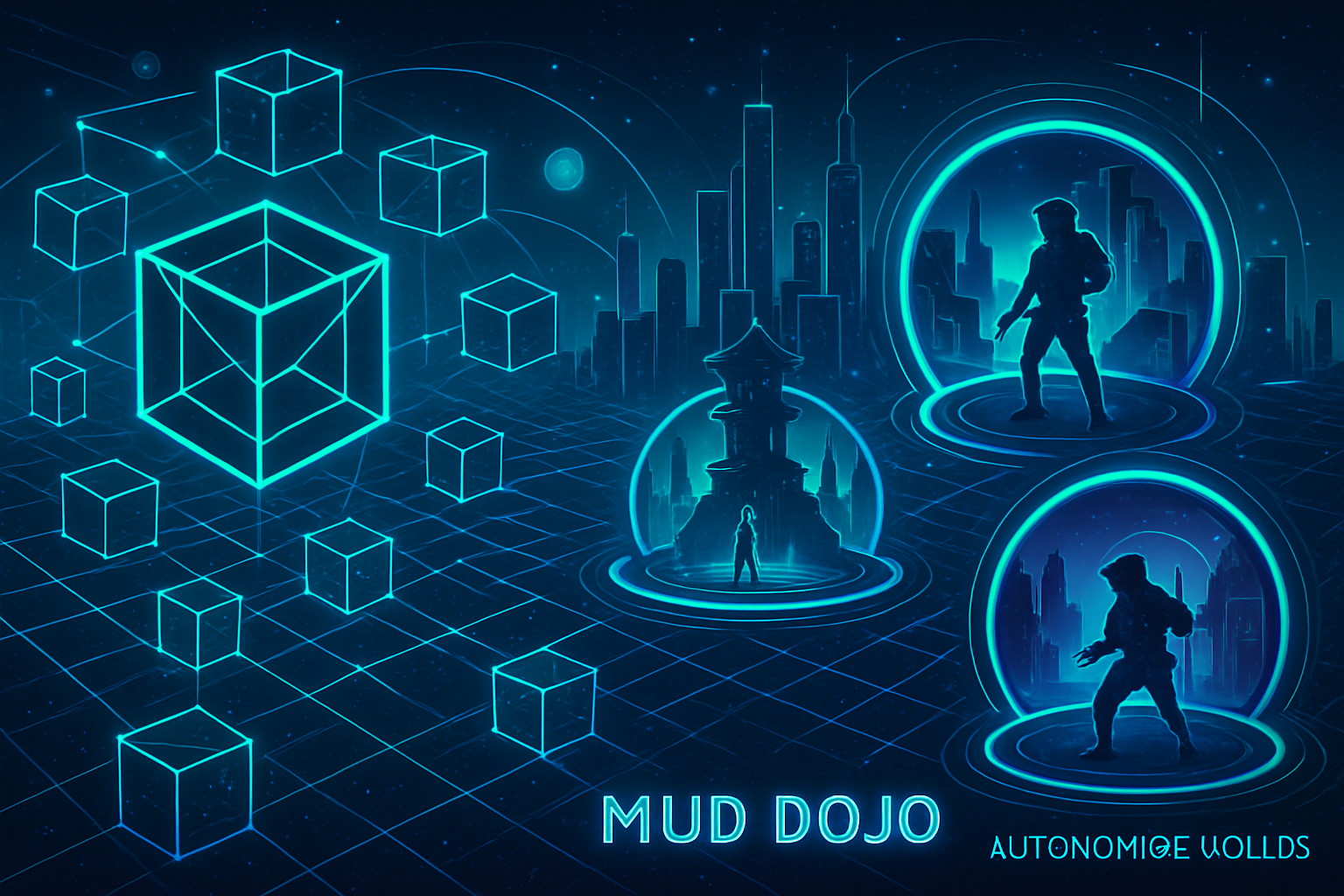
Why Fully On-Chain Games? The Big Shift in Web3 Gaming
Let’s cut through the hype: traditional blockchain games often use crypto for asset ownership but keep most of their logic off-chain. This means central servers still control gameplay outcomes, making them only partially decentralized. Fully on-chain games flip this model. Here’s what changes:
- All game logic is written into smart contracts.
- Every player action is a blockchain transaction.
- No hidden rules or backend manipulation.
- Assets and rules are transparent and composable by default.
This approach unlocks new design paradigms like autonomous worlds, permissionless modding, and truly trustless economies. Developers aren’t just building games – they’re building open-ended digital societies anyone can extend or remix. Want to dive deeper into how this enables true digital asset ownership? Check out our full breakdown at How Fully On-Chain Games Enable True Digital Asset Ownership.
MUD: The EVM Powerhouse for On-Chain Worlds
MUD (by Lattice) is rapidly becoming the go-to engine for developers looking to build fully on-chain games within the Ethereum Virtual Machine (EVM) ecosystem. What sets MUD apart?
- Efficient On-Chain Database: Store complex state directly on Ethereum-compatible chains without breaking the bank.
- Simplified Smart Contract Framework: Focus on gameplay mechanics while MUD handles state sync between on-chain and off-chain clients automatically.
- Composability at its Core: Every aspect of your game can be extended or remixed by others in the community.
The result? Games like OPCraft, Sky Strife, and Kamigotchi are pushing boundaries with persistent worlds that evolve entirely on chain. But as anyone who’s tried to run intensive logic on Ethereum knows, scalability can be a killer. Enter Redstone – Lattice’s custom Layer 2 rollup solution designed specifically for high-throughput gaming. Redstone submits data digests to Layer 1 to keep costs down while still anchoring everything securely to Ethereum’s mainnet.
Dojo: StarkNet’s Provable Game Engine
If you’re more interested in bleeding-edge scalability and cryptographic proofs, Dojo is where you want to look. Built for StarkNet (a Layer 2 scaling solution using STARK proofs), Dojo leverages the Cairo programming language to deliver:
- A provable game engine: Massive computations get compressed into a single proof for maximum efficiency.
- A full toolchain for autonomous worlds: Easily build complex, transparent gaming experiences that scale with your ambitions.
This makes Dojo ideal for developers who want both transparency and performance without sacrificing decentralization. Games built with Dojo aren’t just fast – they’re provably fair and tamper-proof thanks to StarkNet’s cryptography-first architecture.
The New Frontier: Building Composable Game Worlds
The synergy between MUD and Dojo isn’t just technical – it’s philosophical. Both frameworks empower creators to move beyond static NFT projects toward living universes governed by code alone. If you want to see how this composability works in practice (and why it matters), check out our guide at Building Composable Game Worlds: The Power of On-Chain Game Logic.
Developers aren’t the only winners here. Players are finally getting a seat at the table. In fully on-chain games, every action is recorded, every asset is provably yours, and modders can fork or remix worlds without needing anyone’s permission. This is a seismic shift from closed ecosystems and walled gardens. The result? A new breed of games where players, developers, and even bots can interact on equal footing, all governed by transparent smart contracts.
Challenges and Innovations: Scaling Fully On-Chain Worlds
Of course, building these next-gen autonomous worlds isn’t just plug-and-play. Cost and scalability are real hurdles. Ethereum mainnet gas fees can quickly eat into any game’s viability if you’re not careful. That’s why solutions like Redstone (for MUD) and StarkNet (for Dojo) matter so much, they provide the scale needed for complex gameplay without sacrificing decentralization or composability.
MUD’s Redstone rollup lets devs anchor their world to Ethereum but run high-frequency logic affordably off-chain, while Dojo’s Cairo-based engine compresses huge computations into single proofs for StarkNet’s blazing-fast throughput. These aren’t just technical upgrades, they’re what make it possible to build massive multiplayer universes where every sword swing or resource trade is an on-chain event.
Top Fully On-Chain Games Built with MUD & Dojo
-
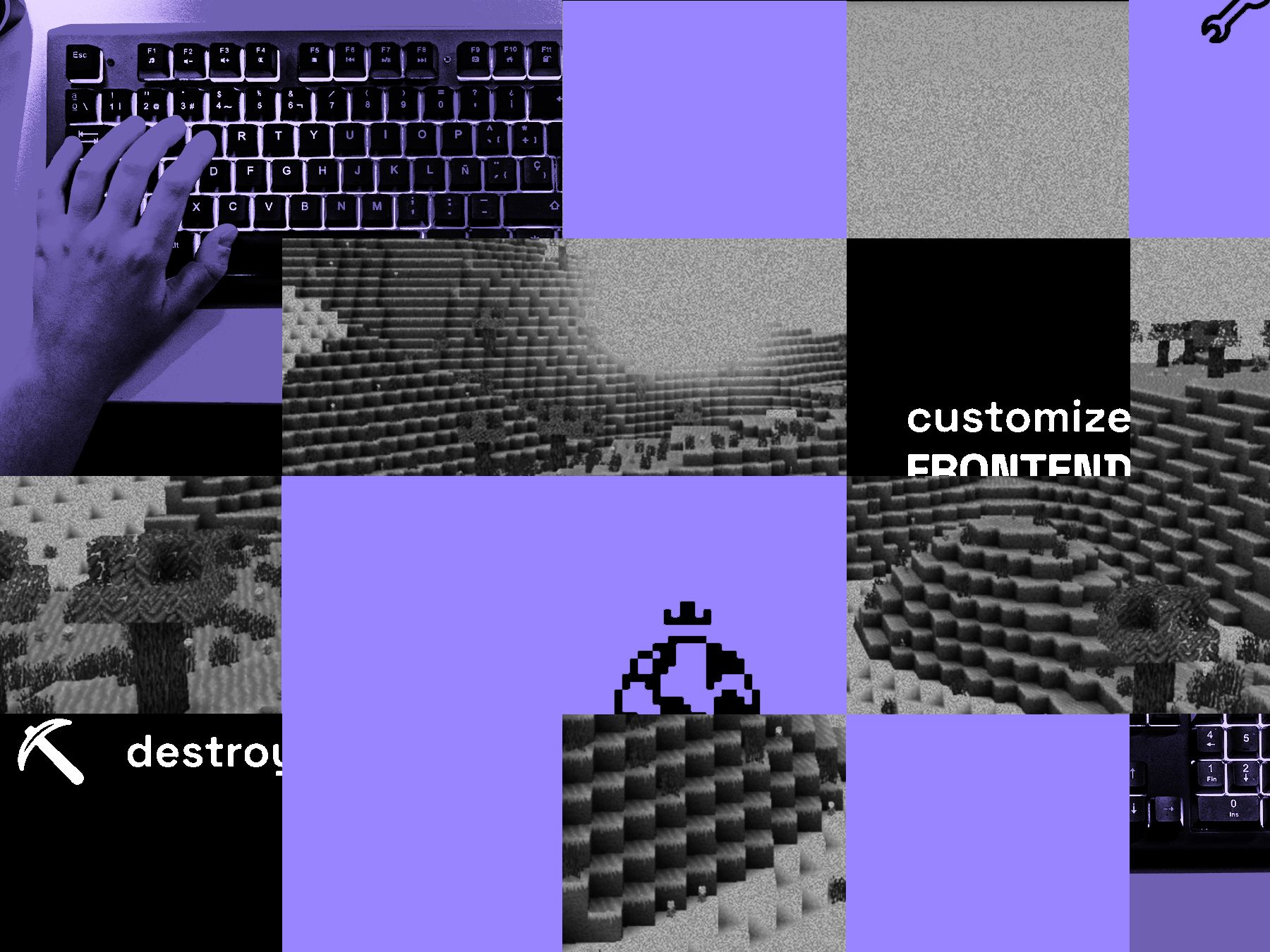
OPCraft — Built on MUD, OPCraft is a fully on-chain voxel world where every block placement, mining action, and world update happens on Ethereum. The game showcases the power of on-chain logic and real-time multiplayer interactions.
-
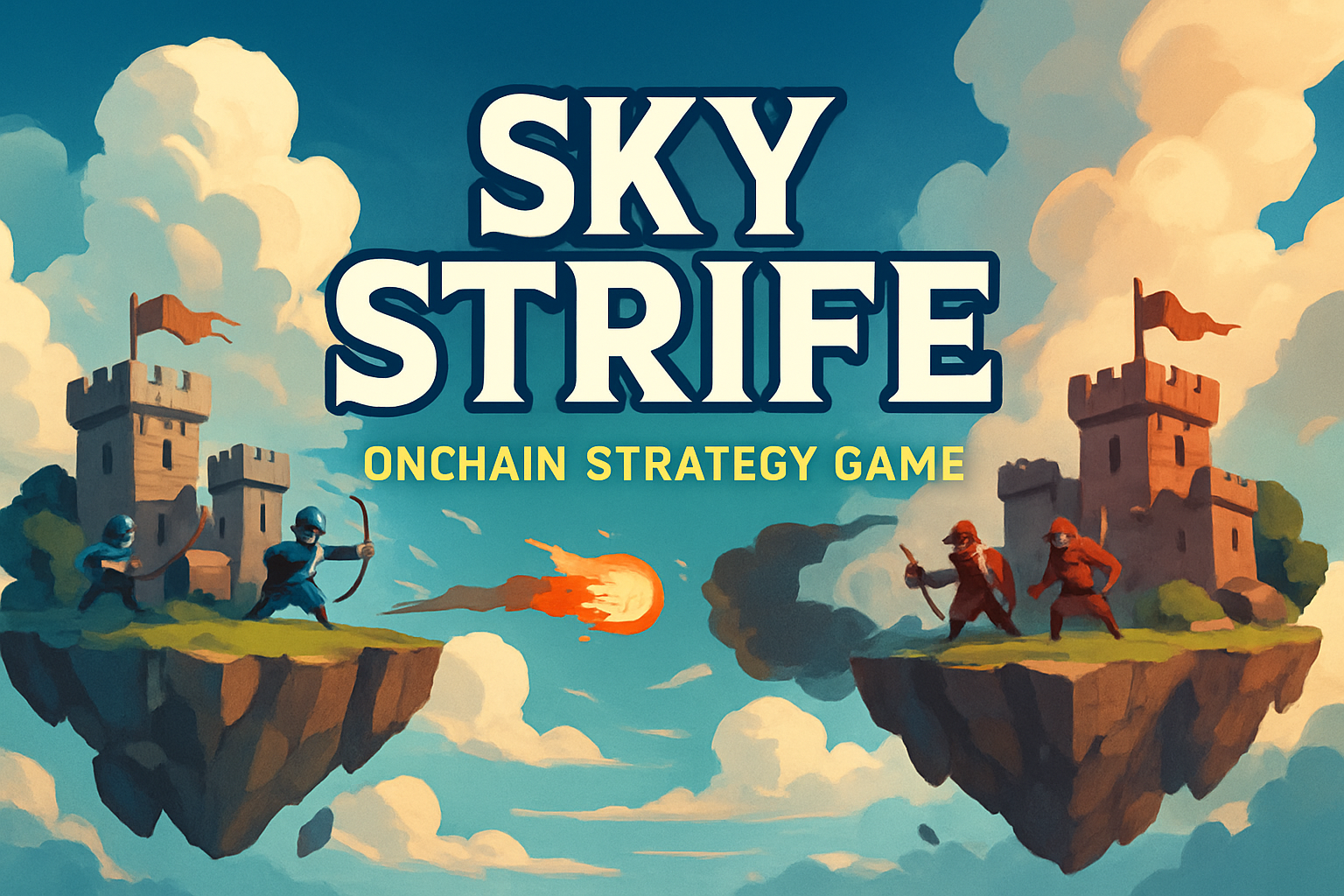
Sky Strife — Developed by Lattice using MUD, Sky Strife is a real-time strategy game where all gameplay mechanics and state are managed on-chain, enabling provable fairness and player-driven economies.
-
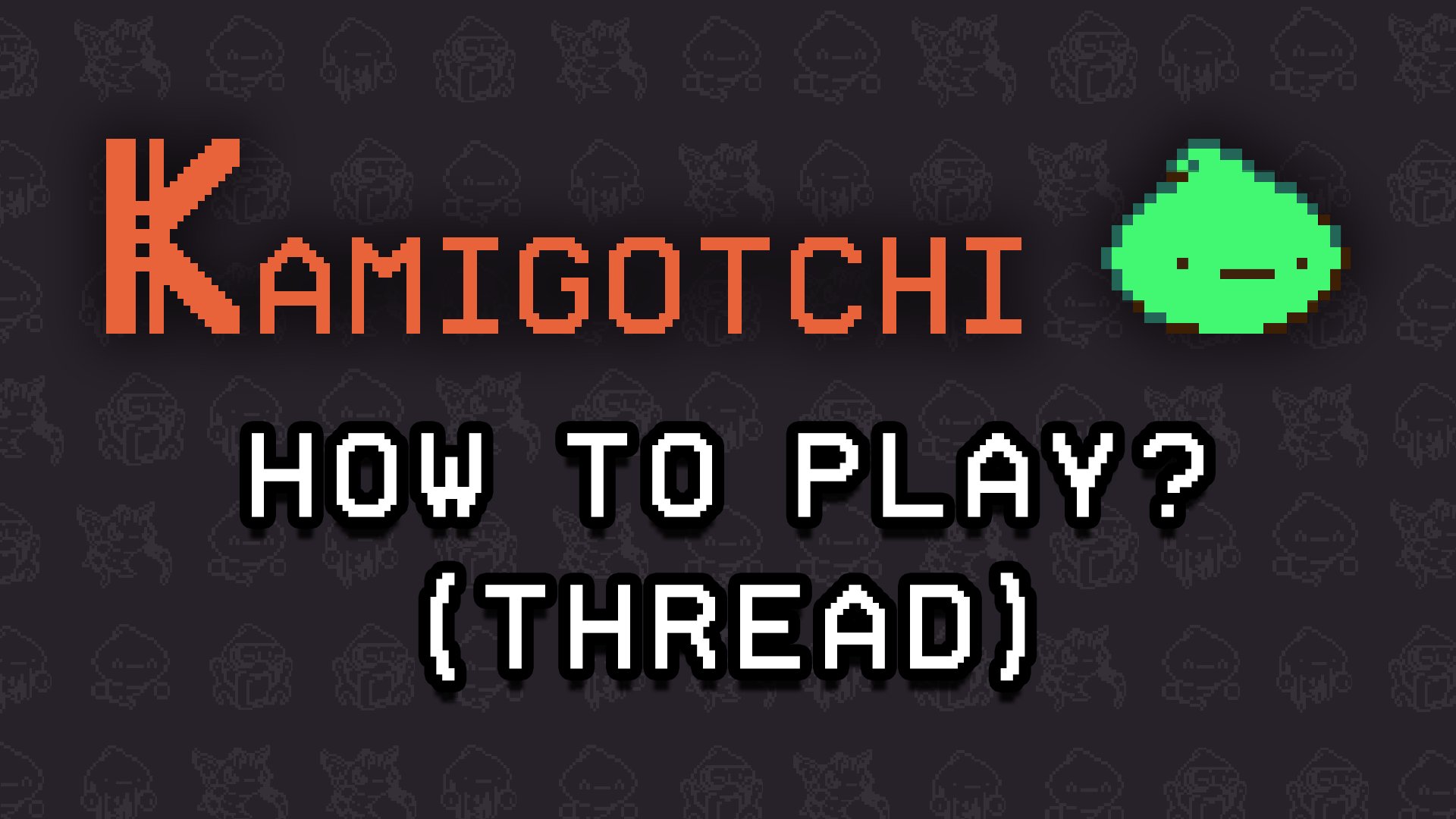
Kamigotchi — Inspired by Tamagotchi, Kamigotchi leverages MUD to let players raise, train, and battle digital pets, with every action and evolution recorded directly on Ethereum.
-
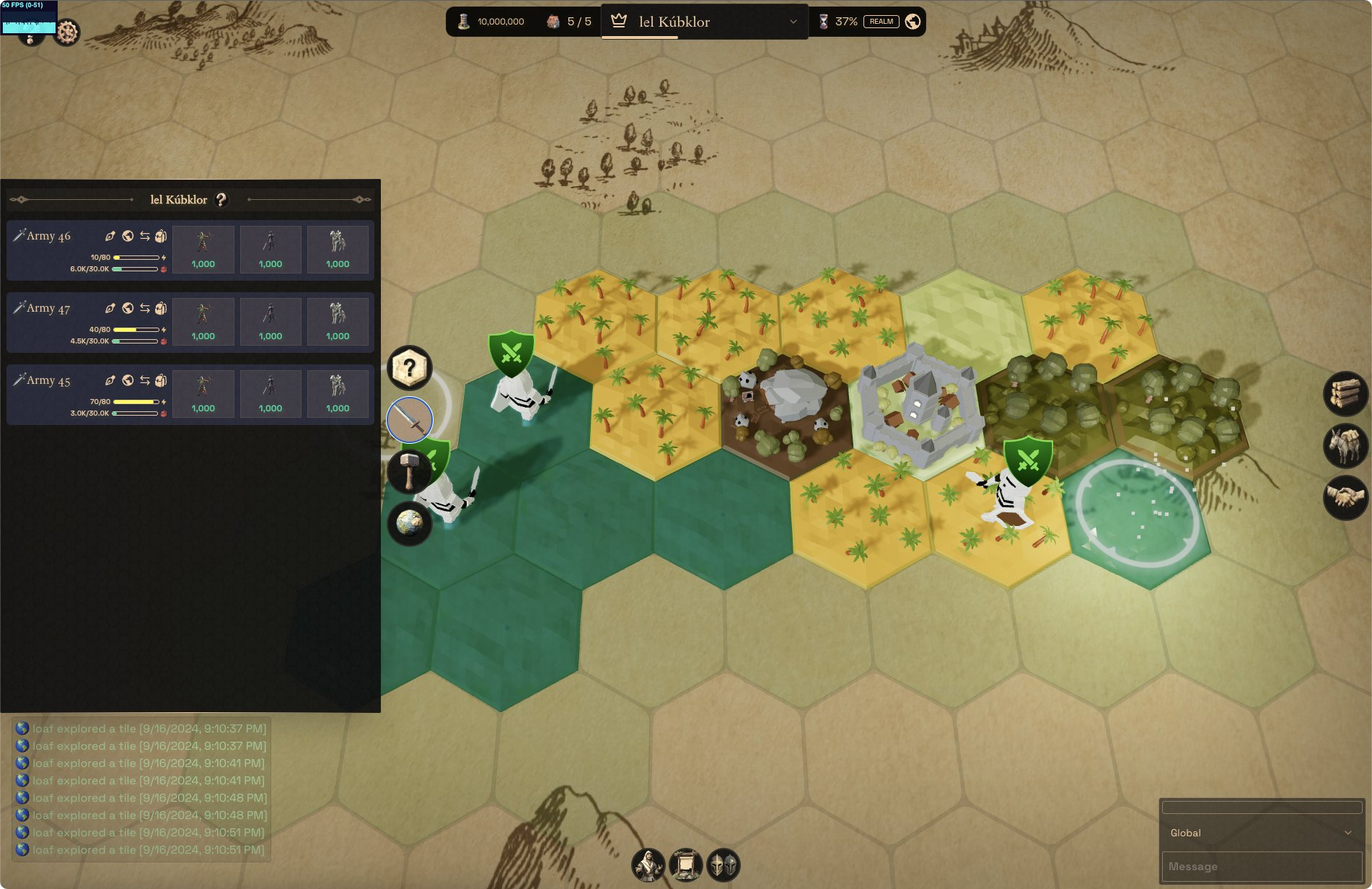
Realms: Eternum — Powered by Dojo on StarkNet, Realms: Eternum is a massively multiplayer on-chain strategy game where players control realms, gather resources, and engage in diplomacy, all enforced by smart contracts.
-
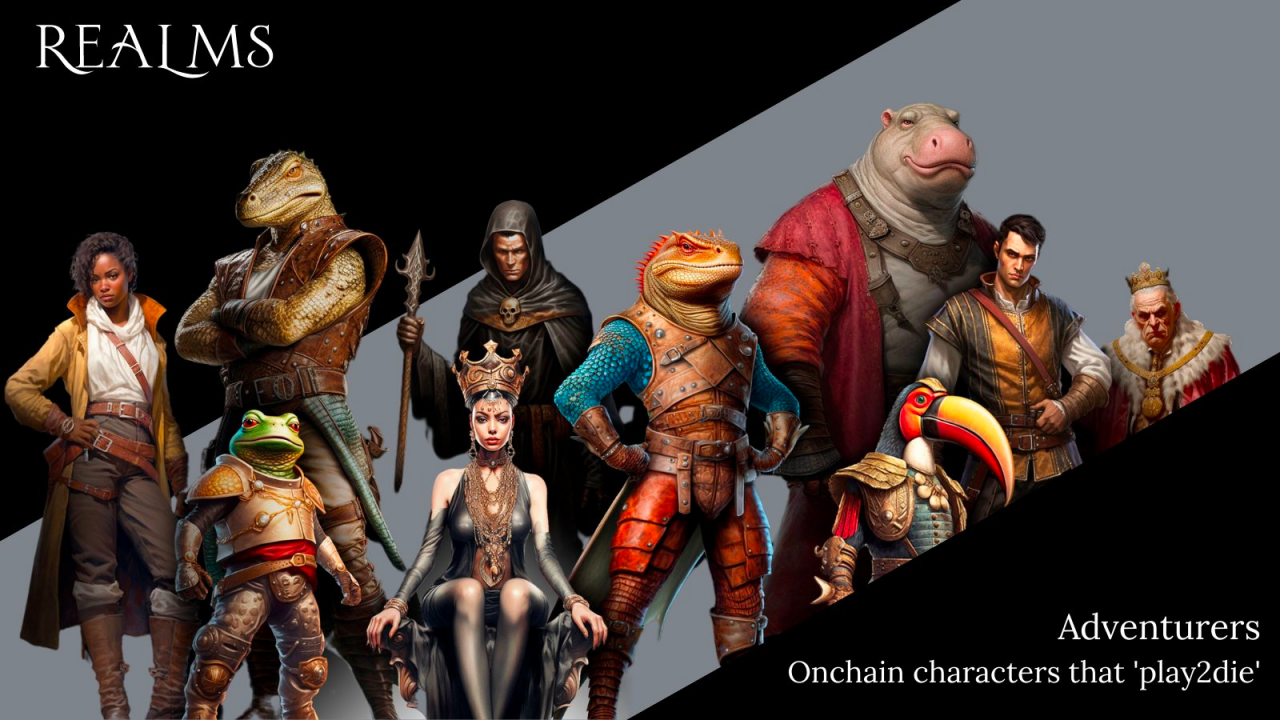
Loot Survivor — Built with Dojo, Loot Survivor is a roguelike adventure game on StarkNet, where every dungeon crawl, loot drop, and monster encounter is processed on-chain for full transparency and ownership.
The innovation doesn’t stop at infrastructure. We’re seeing new tokenomics models, open economies where players set the rules, and permissionless extensions that let anyone build on top of existing worlds. Want to know how play-to-earn mechanics work in this new paradigm? There’s a deep dive waiting for you at Play-to-Earn in Fully On-Chain Games: How Rewards and Tokenomics Work.
What This Means for Developers and Players Right Now
If you’re a developer, now is the time to experiment with these frameworks. The tooling has matured rapidly, MUD offers robust documentation and starter kits for EVM chains; Dojo brings StarkNet-native libraries and Cairo templates ready to go out of the box. The community is growing fast too, with hackathons like ETH Autonomous Worlds (AW) pushing boundaries every month.
For players? You get provable digital property rights and a voice in shaping game worlds, whether that means voting on upgrades or launching your own forked universe. The transparency means no more rug pulls or hidden nerfs; everything’s visible on-chain.
Pro tip: If you want to compare the pros and cons of fully on-chain vs hybrid blockchain games before you jump in as a builder or player, check out our head-to-head analysis at Comparing Fully On-Chain vs Hybrid Blockchain Games: Pros and Cons for Developers.
The Bottom Line: Fully On-Chain Games Are Just Getting Started
The rise of frameworks like MUD and Dojo signals a new era for Web3 gaming, one where composability isn’t just a buzzword but the foundation of entire digital societies. Whether you’re looking to build your own decentralized game world or simply want to play in one where your actions truly matter, now’s the time to get involved.
The future will be written in smart contracts, and thanks to these engines, anyone can help script it.



